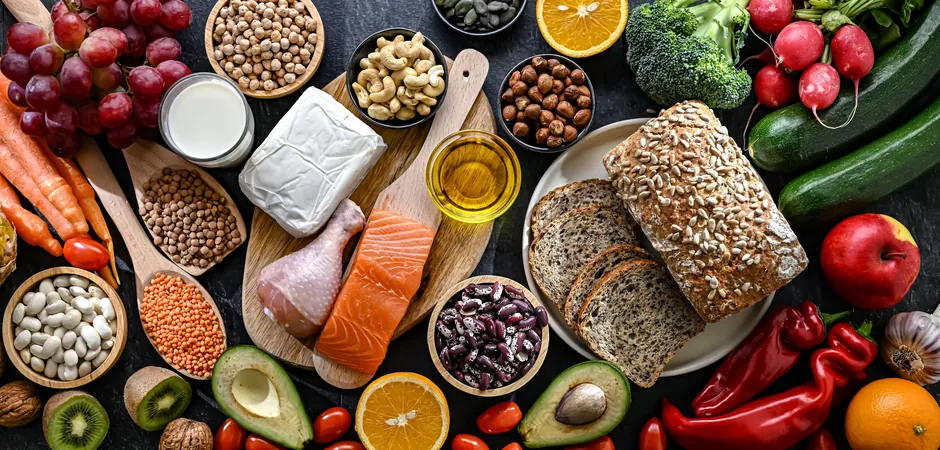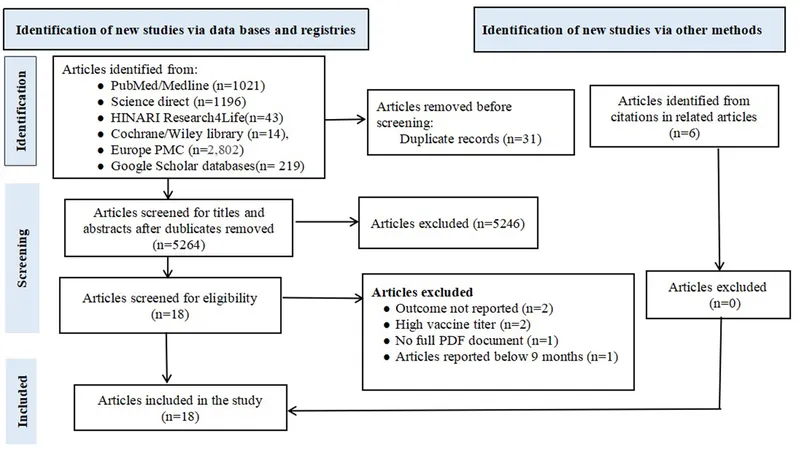
Why Are Rheumatoid Arthritis Patients Overlooking the Mediterranean Diet? Shocking Findings Revealed at ACR Convergence 2024!
2024-11-21
Author: Mei
Introduction
Recent research presented at the ACR Convergence 2024 reveals that despite an overwhelming interest in dietary education, adherence to the Mediterranean diet among patients with rheumatoid arthritis (RA) remains disappointingly low. This dietary pattern has gained attention following the American College of Rheumatology's 2023 recommendation urging RA patients to incorporate Mediterranean-style eating into their lifestyles.
Overview of the Mediterranean Diet
The Mediterranean diet, inspired by the traditional eating habits of regions surrounding the Mediterranean Sea, emphasizes a rich intake of fruits, vegetables, whole grains, legumes, nuts, and healthy fats, particularly olive oil. It also includes moderate portions of dairy, fish, and poultry, while being low in processed foods and sugars. However, this diet is not being embraced by RA patients as expected.
Study Insights
In a comprehensive study, researchers surveyed 1,385 individuals diagnosed with rheumatoid arthritis. The demographic analysis revealed a predominance of women (91%) and a carefully matched representation across various educational and income levels commonly found in the United States.
Alarming results showed that most participants scored poorly on the Mediterranean Diet Adherence Scores questionnaire. Notably, 20% of respondents faced food insecurity, a significant factor linked to low adherence scores. Furthermore, those residing in Southern or Midwestern states, as well as individuals with lower educational or income levels and African American participants, reported adherence challenges. In contrast, self-identified vegans and vegetarians demonstrated much better adherence, with 27% scoring high in the questionnaire.
Impact of Meal Preparation
The study also highlighted a crucial relationship between meal preparation and dietary adherence. Participants spending less than 60 minutes a day preparing meals had notably lower scores. Astonishingly, about 30% of respondents indicated aversions to key components of the Mediterranean diet, like beans and whole grains, which could further hinder their dietary adherence.
Patient Willingness and Barriers
Interestingly, while a significant 84% of participants expressed a willingness to try the Mediterranean diet as a complementary treatment for rheumatoid arthritis, only 27% reported receiving relevant dietary information from their healthcare providers. Those who did receive diet-related advice did not show a significant improvement in their adherence scores. In stark contrast, patients who sought information from patient advocacy organizations scored significantly higher, underscoring the essential role these groups play in educating and empowering patients.
Conclusion
The findings lead researchers to conclude that "while there is a clear openness to dietary education among Americans living with rheumatoid arthritis, significant barriers—such as food insecurity and aversions to Mediterranean diet staples—persist." These barriers are crucial factors that must be addressed to enhance dietary adherence and improve health outcomes for RA patients.
As the quest for better management of rheumatoid arthritis continues, understanding and tackling these dietary challenges could unlock new avenues for treatment. Will healthcare providers take note and adjust their approaches? Only time will tell!




 Brasil (PT)
Brasil (PT)
 Canada (EN)
Canada (EN)
 Chile (ES)
Chile (ES)
 España (ES)
España (ES)
 France (FR)
France (FR)
 Hong Kong (EN)
Hong Kong (EN)
 Italia (IT)
Italia (IT)
 日本 (JA)
日本 (JA)
 Magyarország (HU)
Magyarország (HU)
 Norge (NO)
Norge (NO)
 Polska (PL)
Polska (PL)
 Schweiz (DE)
Schweiz (DE)
 Singapore (EN)
Singapore (EN)
 Sverige (SV)
Sverige (SV)
 Suomi (FI)
Suomi (FI)
 Türkiye (TR)
Türkiye (TR)